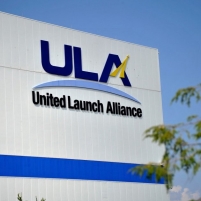House Committee Accuses Air Force of Not Allowing Others to Compete with Lockheed and Boeing for Satellite Launch Contracts
Tuesday, August 21, 2012
 (photo-: Bob Gathany, Huntsville TImes)
(photo-: Bob Gathany, Huntsville TImes)
Two of the nation’s largest defense contractors have enjoyed a virtual monopoly over the launching of Air Force satellites into orbit. But a bipartisan effort in the U.S. House seeks to end the sweetheart deal and open up opportunities for smaller commercial rivals.
United Launch Alliance, a joint venture created by Lockheed Martin and Boeing, has handled all of the Air Force’s satellite launches for six years. The armed service wants to extend this arrangement for another five years, during which the two companies would be paid $19 billion. The new contract would include lightweight satellites that could be manufactured by smaller companies.
But two lawmakers object to the cost as well as allowing Lockheed and Boeing to dominate satellite launches. House Intelligence Committee Chairman Mike Rogers (R-Michigan) and ranking member C.A. Dutch Ruppersberger (D-Maryland) wrote to the Department of Defense in early August complaining that the arrangement with United Launch Alliance lacks competition “and is unable to compete internationally due to high costs.”
Rogers and Ruppersberger want the Air Force to consider two other companies, SpaceX and Orbital, before awarding the next launch contract. They also called on Congress to eliminate a taxpayer-financed subsidy of $100 million per launch to United Launch to cover maintenance and overhead. The subsidy is only provided to United Launch.
-Noel Brinkerhoff
To Learn More:
Lawmakers Complain About Monopoly Space Launch Deal (by Zach Toombs, iWatch News)
- Top Stories
- Unusual News
- Where is the Money Going?
- Controversies
- U.S. and the World
- Appointments and Resignations
- Latest News
- Musk and Trump Fire Members of Congress
- Trump Calls for Violent Street Demonstrations Against Himself
- Trump Changes Name of Republican Party
- The 2024 Election By the Numbers
- Bashar al-Assad—The Fall of a Rabid AntiSemite






Comments